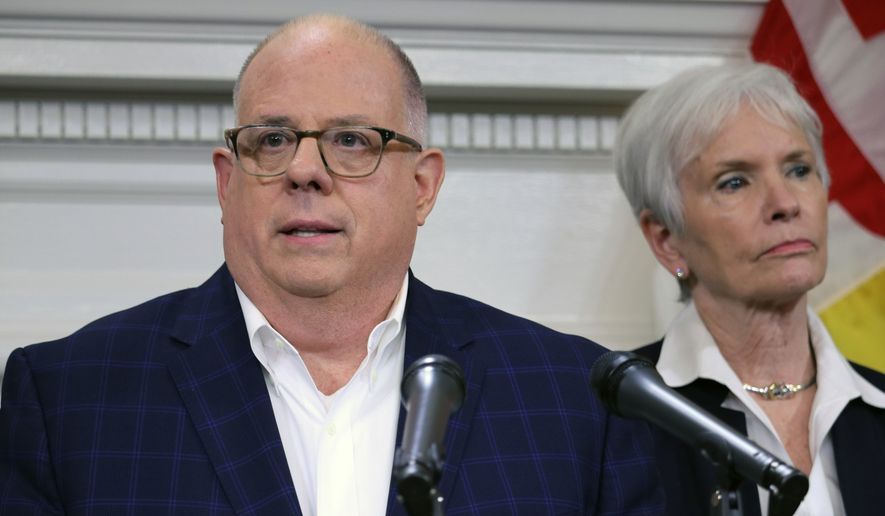OPINION:
Thursday evening, Maryland Gov. Larry Hogan announced — via press conference and official release — that three residents of Montgomery County, near Washington, had tested positive for coronavirus contracted while overseas. He also declared the Free State was now itself in a state of emergency. After Mr. Hogan made his remarks, Fran Phillips, deputy secretary for public health services in Maryland, took over and then fielded questions.
The main questions of the night, attempted with slight variation two or three different times by reporters, was where, exactly, the elderly, married couple in their 70s and a (unrelated) woman in her 50s contracted the virus? What country did they travel from? At which Washington-area airport did they land? Which hospital were they eventually admitted into? Information, you know, it might be nice for the public to have in the midst of a global pandemic.
Except from the vantage point of a wizened government bureaucrat like Fran Phillips, and, by extension, the whole Hogan administration, questions like these — but especially inquiries into the countries of original infections — simply are not “relevant.”
In this dodging, Ms. Phillips was hardly alone: In several cases across multiple states, officials have refused to answer rather relevant questions, like where exactly in the state the coronavirus patients are. Simply saying “California” does not tell us much. California, you may have noticed, is a big state.
Specific knowledge of these facts is directly relevant to the lives of the American public, and government officials should be ashamed — and worried — that their lack of transparency will ultimately cause more harm than good.
Government transparency, especially during a health crisis, inspires one antidote you cannot manufacture in a lab: Confidence in government. Put more directly, if, for instance, Marylanders are confident Mr. Hogan is telling them the truth, they, in turn, will be more inclined to follow emergency directives. This is all the more important with the outbreak of infections like the coronavirus where the state simply cannot enforce things like self-quarantines or personal hygiene regimens. Conversely, if a citizenry thinks its government is lying or playing hide-the-ball with the health of their families, they will simply follow whatever course of action they feel appropriate — and this can have devastating, mass effects.
Second, the confidence government transparency produces helps create a healthy, self-reinforcing safe environment. So, for instance, the more specific Mr. Hogan and officials in other states are regarding infections, the better people can protect themselves. If, for instance, one learns that the infected came over from Italy, one would not willingly consort with recently arrived people from Italy. Or, if one learns the general location of a positive case in a given area, one would not necessarily travel to that part of the state.
Finally, and we throw this one in as freebie for our betters, in politics when one promotes confidence and safety in the public that generally bodes well for electability. In Maryland specifically, we realize that while Mr. Hogan is term-limited, from a look into his desire to mount congressional runs in the past, one can extrapolate that a political career at the federal level isn’t too far away. Handle the coronavirus outbreak in Maryland well, then your future looks bright. Bungle it and, well, there is always some interchange off of Route 270 that can be named after you.
As the governor noted, “Marylanders should go to work or go to school, as they normally do. At the same time, I want to continue to remind everyone to prepare themselves and to continue to stay informed.”
That last bit should be fairly easy to accomplish once the governor wakes up.




Please read our comment policy before commenting.